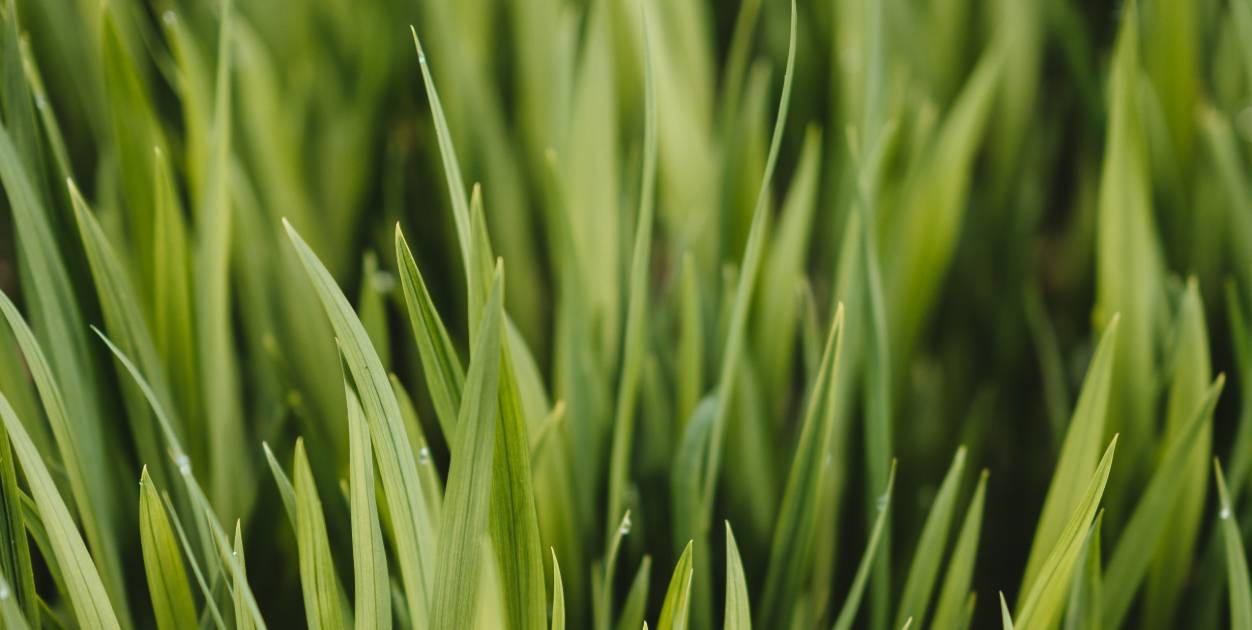Grass

I was thinking that maybe this topic is outdated, no longer relevant and I could skip it, but then I Googled: “Is glyphosate still used on grass?” And I saw the first search result to appear on my screen…
Sources
https://www.baumhedlundlaw.com
SUBSCRIBE
Subscribe on iTunes here.
Subscribe on Spotify here.
Subscribe on Google Podcasts here.
Transcript
When we bought our house in California we inherited the 80 year old landscaper who had been maintaining the yard for the past 15 years. Upon our first meeting, my husband told him we had a toddler and didn’t want to use any weed killer or Roundup. The landscaper’s response was, “Then your grass is going to look like shit.” In this episode, we’re talking about glyphosate.
I remember as a kid, coming home from school, and seeing little yellow flags in the corners of our yard. If you weren’t a kid who grew up in the suburbs, you may have no idea what I’m talking about but those little yellow flags had a cartoon outline of a dog, an adult and a kid standing on spikey grass. And then a circle and a line drawn through them. The words on the flag read: Caution. Pesticide Application. Keep off. And then in small print, it said: “Customer: Please remove after 48 hours.”
I also remember as a kid, my dad telling me not to walk on the grass.
As an adult, I don’t see those little flags in yards anymore so when I started researching this episode I googled: “Is glyphosate still used?” Glyphosate is a herbicide sprayed in lawns and gardens — you may also know it by the brand name Roundup.
I was thinking that maybe this is topic is outdated, no longer relevant and I could skip it, but then I read the first search result to come up on Google:
[quote] “Glyphosate is by far the most widely used herbicide in the United States, and probably worldwide. It is used on nearly every acre of corn, cotton and soybean grown in the U.S. You may have sprayed it on your lawn or garden.”
It went on to further say, glyphosate is in our food and water, as well as the dust and air we breathe.
Bayer, the company that sells Roundup, and Monsanto, the company that originally developed Roundup later selling it to Bayer, have both spent decades and put millions of dollars into research showing that glyphosate is safe for humans and only dangerous to plants.
But third-party studies, that aren’t funded by Bayer or Monsanto, beg to differ. In fact, these studies have found that glyphosate causes Non-Hodgkin’s Lymphoma, a cancer that starts in the lymphatic system.
And as of June 2020, Bayer will pay more than $10 billion to settle thousands of lawsuits filed over its Roundup weedkiller.
The plaintiffs in these lawsuits are claiming that the active ingredient — glyphosate — caused them to develop cancer. This is five years after the World Health Organization classified glyphosate as “probably carcinogenic to humans.”
So yes, victims are being paid out — and in the meantime, everyone here in the United States is still eating and drinking it in our food and water, even if we’re not using it on our own lawns.
If you think this may be an overreaction, 22 other countries have banned the use of glyphosate. And here we are, in the U.S. not only using it but using it more than any other herbicide.
There is a playground and park near where we live in San Diego and it’s labeled as an organic park that doesn’t spray pesticides and herbicides on the grass. Unfortunately, you can’t assume that your local park is doing the same.
I talked about this a bit in the cleaning supplies episode, but this is another instance where there’s opportunity to create a movement. All it takes is yourself and a few other parents, calling your town or city and asking if they spray pesticides or herbicides at your local park. What if all of us were doing that?
Sure, we’d still have to buy organic food and a heavy duty water filter, but at least we wouldn’t have to worry about our kids playing in the grass (which in theory, should be a great and very healthy thing for them to be doing.)
So, instead of a “This for That” segment, I’m going to give you one call to action. Call your town or city. Ask about the maintenance plan for your playground or nearby park. And then ask a friend to do the same. If that feels weird, then just send them a link to this episode. And it probably goes without saying, but if you are still treating your yard with Roundup or a similar weed killer, then I urge you to consider stopping altogether or at least switching to some of the organic options.
Thanks so much for listening to this episode of The Clean Living Podcast — I’m your host Shannon Lohr. If you learned something today please share with a friend — maybe one who loves to garden. Here’s to creating a cleaner, more sustainable world for all of us.

